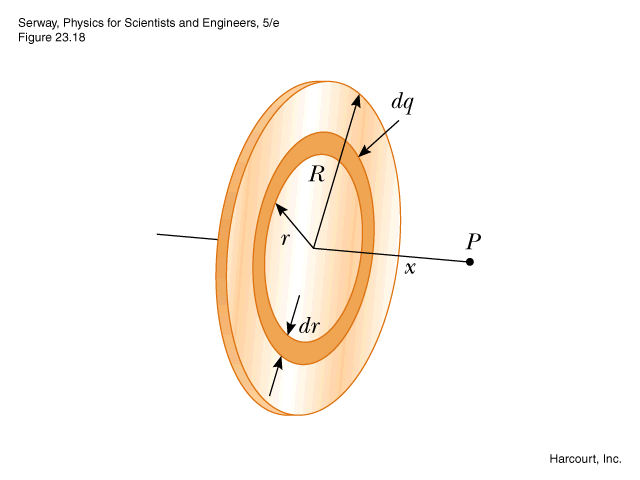Charged Disk
We will cover how to find the electric field of a uniformly charged disk, and how this can also apply to capacitors. (Shubham Shah)
The Main Idea
In this section, we will do a step-by-step process of calculating the electric field of a uniformly charged disk. This is especially important because two oppositely charged metal disks collectively are known as a capacitor, a concept seen in several places in physics and the real world.
A Mathematical Model
Before we begin our calculations, take a look at this image of a uniformly charged disk:

This image shows a visual representation of a disk. It should look pretty familiar. In fact, the shape of a disk is simply an extension of a ring. Think of it as infinitely many uniformly charged rings. Thinking of a disk this way will help to understand the equation of the electric field for a uniformly charged disk.
Recall the equation for the electric field of a uniformly charged ring:
[math]\displaystyle{ \ E=\frac{qz/A}{\4*pi*epsilon_0 } }[/math]
A Computational Model
How do we visualize or predict using this topic. Consider embedding some vpython code here Teach hands-on with GlowScript
Examples
Be sure to show all steps in your solution and include diagrams whenever possible
Simple
Middling
Difficult
Connectedness
- How is this topic connected to something that you are interested in?
- How is it connected to your major?
- Is there an interesting industrial application?
History
Put this idea in historical context. Give the reader the Who, What, When, Where, and Why.
See also
Are there related topics or categories in this wiki resource for the curious reader to explore? How does this topic fit into that context?
Further reading
Books, Articles or other print media on this topic
External links
Internet resources on this topic
References
This section contains the the references you used while writing this page